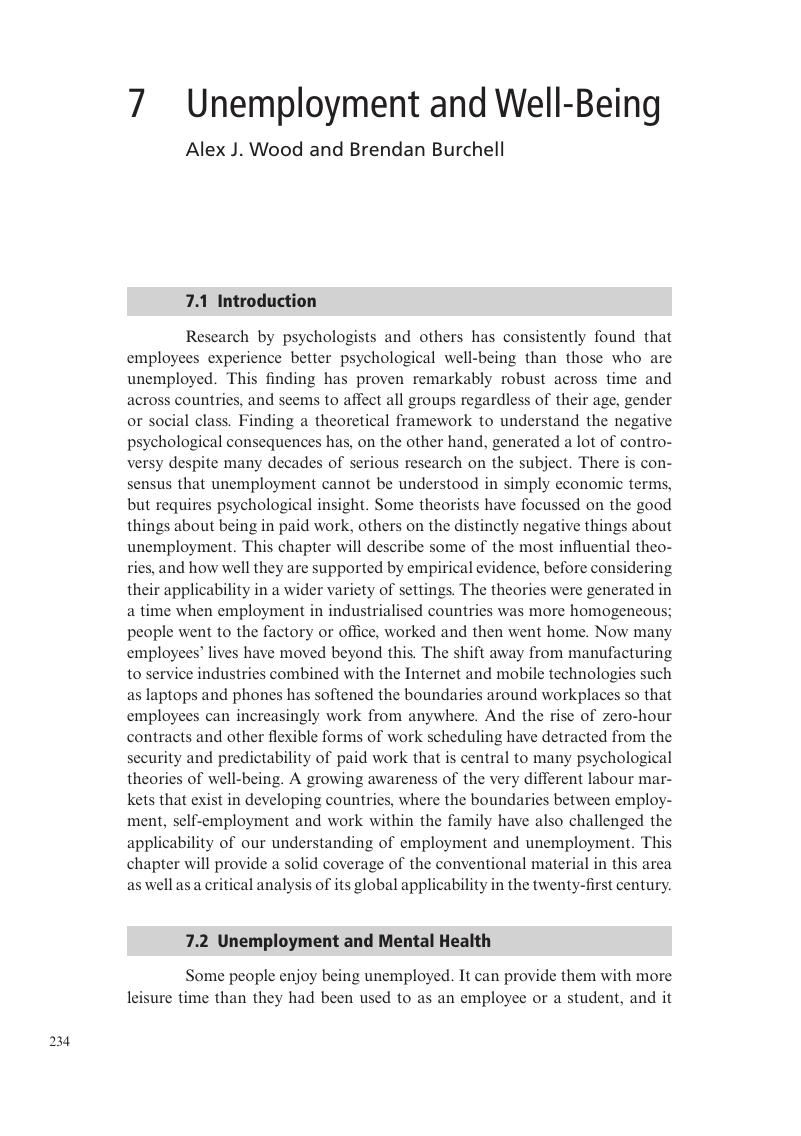Book contents
- The Cambridge Handbook of Psychology and Economic Behaviour
- The Cambridge Handbook of Psychology and Economic Behaviour
- Copyright page
- Dedication
- Contents
- Plates
- Figures
- Tables
- Notes on Contributors
- Introduction
- Part I Theory & Method
- Part II Finance
- 3 Looking into the Future
- 4 Speculative Bubbles
- 5 Intertemporal Choice
- 6 Debt
- 7 Unemployment and Well-Being
- 8 Money Management in Households
- 9 Socially Responsible Investing
- Part III Private Sector Consumer Behaviour and the Firm
- Part IV Public Sector Consumer Behaviour
- Part V Environment
- Part VI Biological Perspectives
- Part VII New Horizons
- Index
- References
7 - Unemployment and Well-Being
from Part II - Finance
Published online by Cambridge University Press: 01 February 2018
- The Cambridge Handbook of Psychology and Economic Behaviour
- The Cambridge Handbook of Psychology and Economic Behaviour
- Copyright page
- Dedication
- Contents
- Plates
- Figures
- Tables
- Notes on Contributors
- Introduction
- Part I Theory & Method
- Part II Finance
- 3 Looking into the Future
- 4 Speculative Bubbles
- 5 Intertemporal Choice
- 6 Debt
- 7 Unemployment and Well-Being
- 8 Money Management in Households
- 9 Socially Responsible Investing
- Part III Private Sector Consumer Behaviour and the Firm
- Part IV Public Sector Consumer Behaviour
- Part V Environment
- Part VI Biological Perspectives
- Part VII New Horizons
- Index
- References
Summary

- Type
- Chapter
- Information
- The Cambridge Handbook of Psychology and Economic Behaviour , pp. 234 - 259Publisher: Cambridge University PressPrint publication year: 2018
References
7.16 References
- 20
- Cited by

